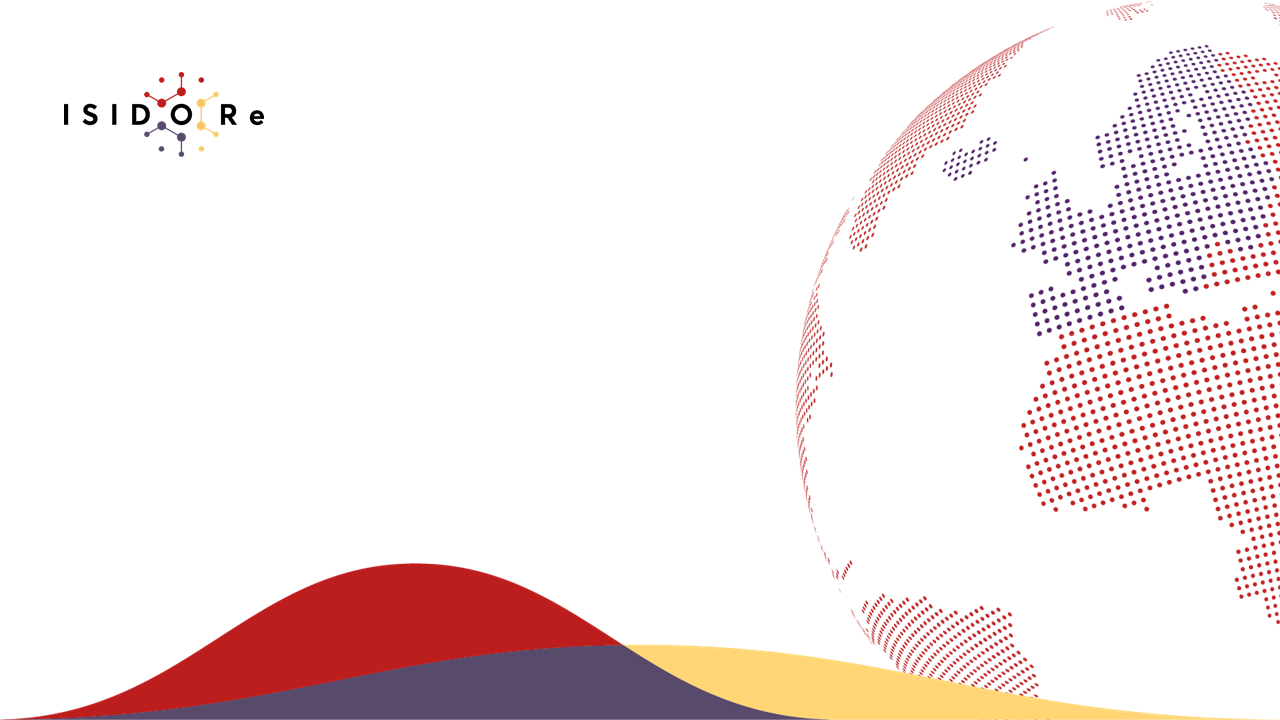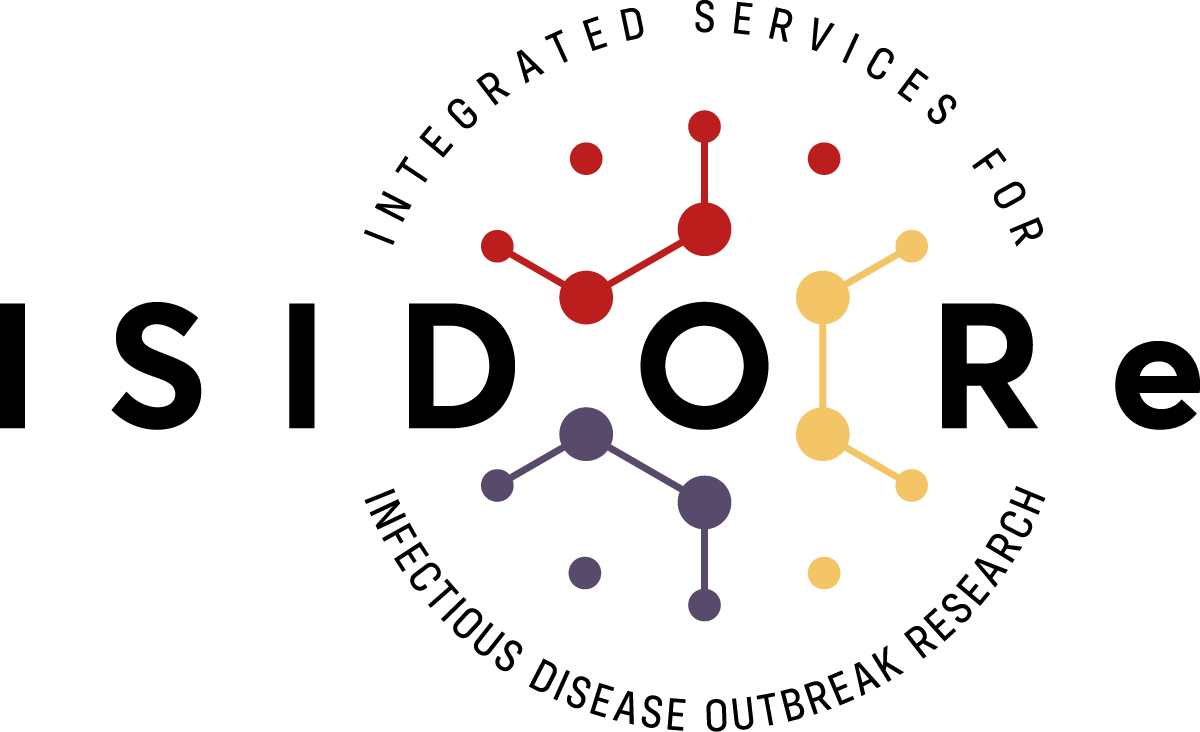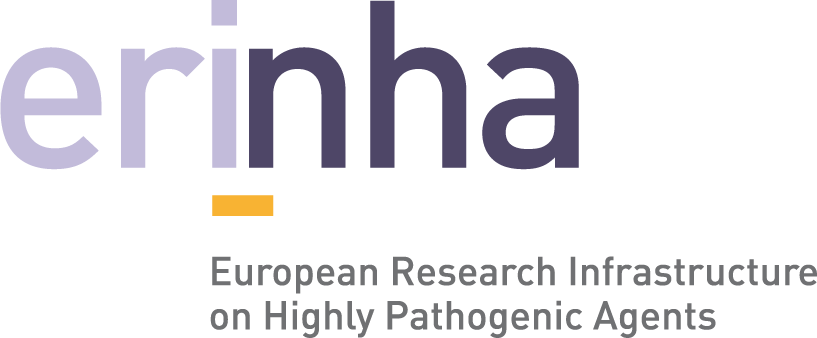#FEMSmicroBlog: ISIDORe (Integrated Services for Infectious Disease Outbreak Research) to increase pandemic preparedness
ERINHA (the European Research Infrastructure on Highly Pathogenic Agents) coordinates, with funding from the EU-HERA incubator call, ISIDORe, the Integrated Services for Infectious Disease Outbreak Research. ISIDORe advances research on epidemic-prone pathogens by providing free-of-charge access to the facilities, cutting-edge services, equipment and technologies of its 154 members. Calls for proposals are currently open. #TheCulturePlate
There is no doubt that the current COVID-19 pandemic is unprecedented in modern times. Outbreaks of SARS, MERS, Ebola virus, Zika virus , as well as the recent Monkeypox virus (considered a public health emergency of international concern), have demonstrated that the emergence, re-emergence and globalization of infectious diseases are a tangible reality.
ISIDORe for global pandemic preparedness
The COVID-19 pandemic revealed critical gaps in European and global preparedness and research response to infectious diseases. This lack of sufficient preparedness at the EU and global levels made our public health systems, economies and societies vulnerable. The Integrated Services for Infectious Disease Outbreak Research (ISIDORe) initiative proposes a new approach to arm Europe with the necessary research tools, services and resources for rapid research response to current threats as well as to the next epidemic-prone pathogen outbreaks before they go global. ISIDORe increases resilience in the face of epidemics in Europe and globally.

What ISIDORe offers
ISIDORe can be accessed free of charge. ISIDORe offers state-of-the-art facilities, cutting-edge services, and equipment and technologies to advance research on epidemic-prone pathogens.
The interdisciplinary project is coordinated by the European Research Infrastructure on Highly Pathogenic Agents (ERINHA), and brings together all key European life sciences research infrastructures and networks, as well as those in the social sciences. From structural biology to clinical trials, ISIDORe provides an integrated portfolio of cutting-edge research services and resources divided into nine large categories:
- analytical services
- cell models
- in-vivo models
- immuno-monitoring and profiling
- support for diagnostic and therapeutic development
- support for vaccine development
- clinical samples
- regulatory advice, trial preparation and access to European clinical trials
- social sciences and epidemiology

ISIDORe calls for proposals
The provision of research services to researchers is organised through calls for proposals and a selection process. The calls for proposals, and their research priorities, align with consensus strategies for epidemic management and preparedness, as formulated by a strategic advisory board of ten leading European and international bodies: CEPI, the European Commission, the ECDC, EFPIA, EMA, FAO, GloPID-R, HERA, WHO and WOAH.
Following its rapid research response calls for proposals dedicated to SARS-CoV-2 and its variants and Monkeypox virus (both deadlines recently expired), ISIDORe has launched its preparedness programme call for proposals for free of charge access to the consortium facilities and services.
To prevent future pandemics, and advance the development of the appropriate medical countermeasures, the ISIDORe preparedness programme includes a list of priority preparedness pathogens clustered in four calls for proposals to support research on the epidemic-prone pathogens such as:
- Risk-Group 4 pathogens (Ebola virus, Marburg virus, Nipah virus, Hendra virus, Lassa virus, “New world arenaviruses”, CCHF virus);
- Respiratory Pathogens (zoonotic betacoronaviruses, Influenza A, Y. pestis, M. tuberculosis/bovis, C. burnetii);
- Vector-borne Pathogens (Rift valley fever virus, Zika virus, Chikungunya virus, West Nile virus, Dengue virus, Japanese encephalitis virus, Yellow fever virus, Tick-borne encephalitis virus, Plasmodium, B. burgdorferi, Leishmania); and
- Other pathogens with epidemic potential (pathogen X, Orthopoxviruses, Non polio enteroviruses, Polio enteroviruses).
The ISIDORe calls are multidisciplinary and open to all scientists (EU and international) from both academia and the private sector.
About the ISIDORe coordinator: ERINHA
The European Research infrastructure on Highly Pathogenic Agents (ERINHA) provides access to high-containment research services to all scientists with a relevant research project.
Within ISIDORe, it offers a wide variety of research models, both cellular and animal, and associated analyses, ranging from traditional virology to more sophisticated and high-throughput approaches. Services include standard analytical capabilities such as viral titer measurements and neutralisation assays, together with high-content bioimaging, NGS and much more.
ERINHA facilities offer a large range of animal models to support preclinical research: from small rodent models (mice, hamsters) to non-human primates. Certain pathogens may only infect specific hosts. The development of new animal models is thus also considered, but only in the context of a broad 3R (Replacement, Reduction and Refinement) policy that aims to minimise the use of animals.

- For more information about ISIDORe, its calls for proposals and how to apply see the ISIDORe website
- Read our previous post: #FEMSmicroBlog: ERINHA (European Research Infrastructure on Highly Pathogenic Agents) to prevent epidemics
- See also the ERINHA website; it’s possible to subscribe to a newsletter and follow ERINHA on Twitter and LinkedIn.
- Contact: contact (at) isidore-project.eu
A previous version of this blog was originally published on the FEBS Network.
Diana Stepanyan is Director of External Affairs, Strategy and Communication at ERINHA. During the preparatory phase and set up of the infrastructure, she served as Deputy Coordinator and Advocacy Manager at its coordinating entity, P4 Inserm-Jean Mérieux laboratory. She previously worked in public policy and governmental affairs at European level for the vaccine industry companies, as well as the UNDP projects in Eastern European countries. She holds a University Degree in Political Sciences and Master’s degree in European studies and international relations.
About this blog section
In the section #TheCulturePlate, we give a voice to our network, which is greatly diverse and spread all over the world. We present personal accounts, views, opinions, and interviews.

